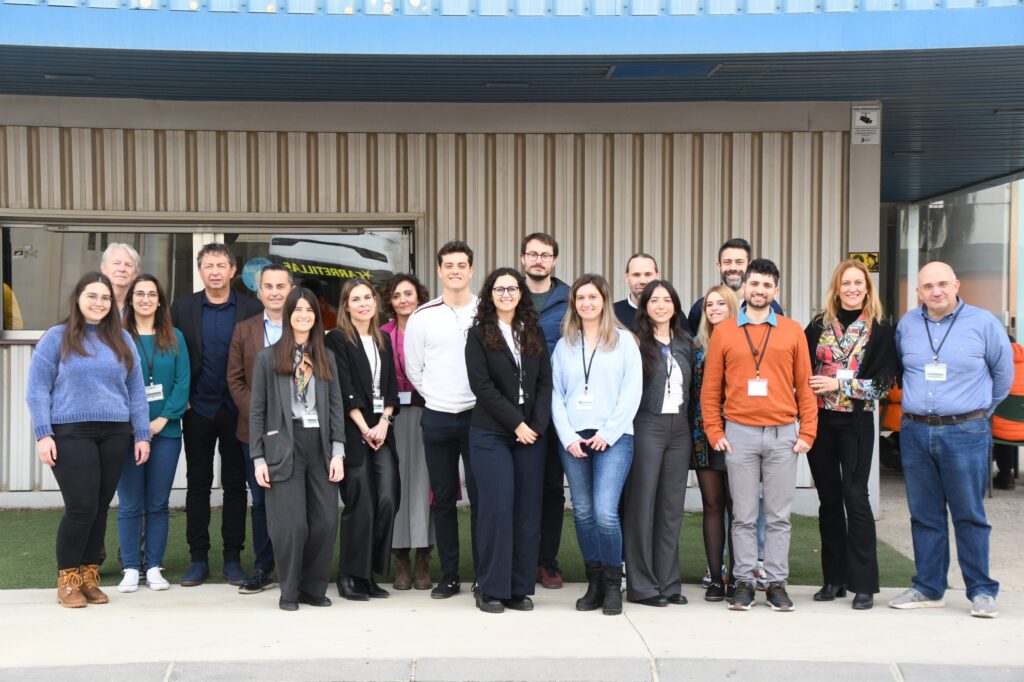
A new project, ANIPH (Avoiding the Negative Impacts produced by Plastic materials in Humanitarian contexts), is set to redefine the role of plastics in humanitarian contexts and address environmental challenges by introducing biobased and biodegradable plastic products (BBpPs) designed for safety, sustainability, and circular economy.
Plastic pollution, particularly from single-use items such as healthcare and packaging waste, presents a critical issue in humanitarian contexts, such as armed conflicts and natural disasters, where proper waste management is often unfeasible. To address this, ANIPH will harness the power of polyhydroxyalkanoates (PHAs), a family of biodegradable biopolymers. PHAs are notable for their biocompatibility and ability to fully degrade in various environments, including soil, freshwater, and marine ecosystems, without contributing to microplastic pollution.
At the heart of ANIPH’s mission is the creation of a new PHA value chain that will enable the production of modern wound dressings and recyclable, water-barrier packaging. These products will feature programmed biodegradability at every stage of their lifecycle. The project leverages artificial intelligence to predict biodegradation, assess ecotoxicity, and optimise material properties, while a digital traceability tool ensures the secure tracking of materials throughout the value chain.
“ANIPH is all but a standard project” says Marcello Bardellini, Project Management Officer at ICONS, member of the project “It breaks free from fossil-based plastics while developing a sustainable, bio-based plastic suitable for application in humanitarian contexts and being furthermore biodegradable in all environments. In this context, our role as ICONS is to guide all the partners in raising the projects’ visibility and to produce compelling business cases for the innovations ahead”.
By integrating circular economy principles, ANIPH aims to address environmental challenges while fostering sustainable development. The project focuses on using renewable feedstocks and reducing industrial waste through innovative manufacturing processes, such as 3D printing for wound dressings. It also emphasises tailored end-of-life solutions, including mono-material designs for packaging that enable recycling and safe biodegradation in open environments.
The project is expected to reduce CO2 emissions by 43% and 68% for packaging and wound dressings respectively, and recirculate 1.475 kilotons of biomass. Furthermore, it will eliminate the use of 12.93 kilotons of hazardous substances, setting a new standard for sustainability in the plastics industry.
In addition to environmental benefits, ANIPH contributes to the development of new standards and certification schemes to ensure the safe and sustainable deployment of BBpPs. It will also provide capacity-building resources about the use and disposal of bioplastics, enhancing public trust and understanding.
Over the next four years, eight European partners, coordinated by CETEC, will combine their scientific expertise and knowledge to deliver lasting environmental, economic and social benefits, contributing to a more sustainable future.
Contact
Marcello Bardellini, Project Management Officer at ICONS or E-Mail at info@aniph.eu.
Source
ICONS, press release, 2025-02-03.
Supplier
Centro Tecnológico del Plástico y el Calzado CETEK
ICONS S.r.l.
Share
Renewable Carbon News – Daily Newsletter
Subscribe to our daily email newsletter – the world's leading newsletter on renewable materials and chemicals










